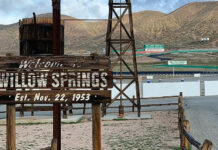Inauguration of the FIM Institute
MotorLand Aragón (Alcañiz, Spain), 26 September
The Fédération Internationale de Motocyclisme (FIM) is proud to announce the inauguration of the FIM Institute located in TechnoPark MotorLand (Alcañiz, Spain). The Institute is a non-profit organisation set up by the FIM that develops technological solutions to improve safety in motorsport and sustainability in the world of motorcycling.
The ceremony was held on Friday 26 September, in the presence of Messrs. Vito Ippolito (FIM President), Arturo Aliaga (MotorLand President), Antonio Gasión (MotorLand CEO), Carmelo Ezpeleta (Dorna CEO), representatives of the FIM, Dorna, the local Authorities and members of the local and international Media.
After the inauguration, FIM President Vito Ippolito explained: “The FIM Institute represents a great step forward for our Federation. The safety of the riders and the circuits is a top priority for the FIM and we plan to test in these laboratories devices and materials aimed at safer motorcycling and to analyse the way accidents happen in order to try to prevent them. MotorLand offered us good facilities and high-level experts in close proximity to an important circuit. We would like to thank the local authorities and the management of MotorLand for all their support.”
Mr. Arturo Aliaga added: “The presence of the FIM is an important support for TechnoPark MotorLand. The TechnoPark offers the best conditions and facilities for carrying out such tests focused on safety and this Institute is an excellent boost for the great sports and technology complex of MotorLand.”
All the FIM Commissions are involved in the work of the FIM Institute. In addition to motorsport competition, the FIM also concerns itself with other, non-sporting aspects of motorcycling.
About the FIM Institute
Health and safety through technology
The FIM Institute is responsible for research and development projects focusing on different areas related to motorcycling, including road safety, medical and health prevention technology, the environment, approval of equipment, improving standards for circuits, researching new materials and improving standards for the testing of safety devices.






